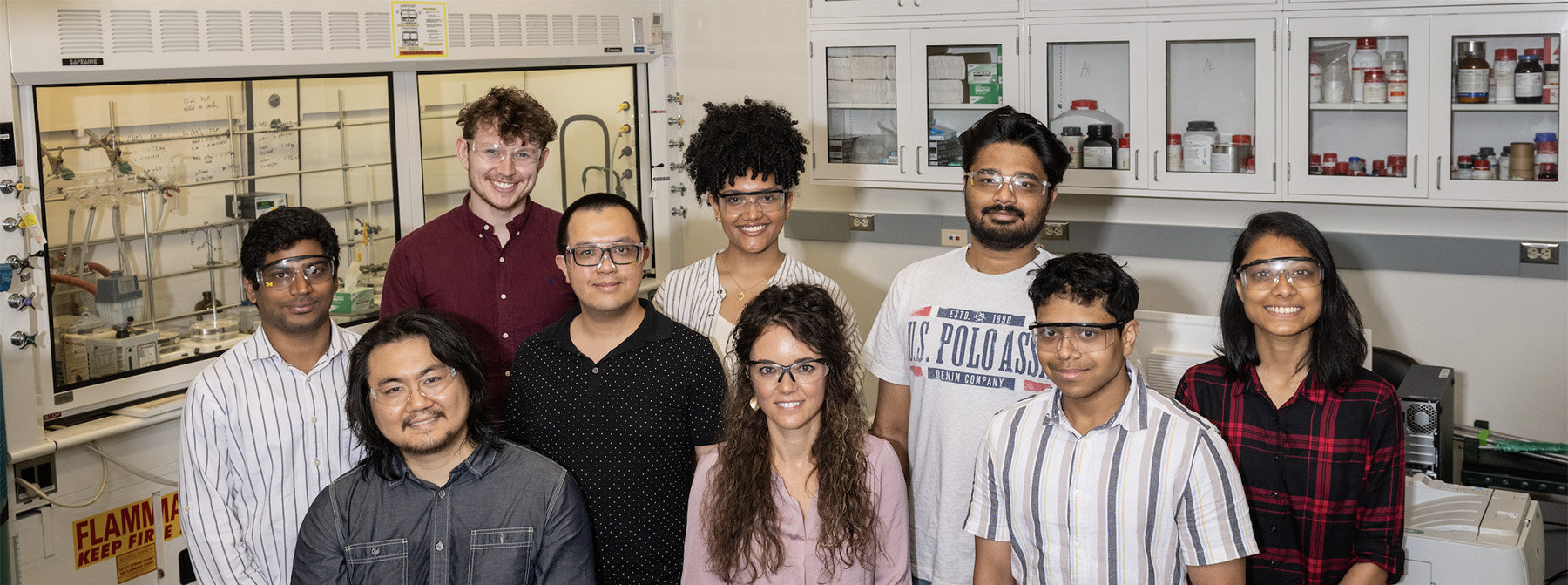
Q&A with Chemical Engineering undergraduate student Asesh Chanda
Asesh Chanda discusses his internship in the Nikolla Lab and exploring graduate-level research.

Asesh Chanda discusses his internship in the Nikolla Lab and exploring graduate-level research.
Asesh Chanda is an undergraduate student in the Department of Chemical Engineering. Earlier this year, Chanda was accepted into the College of Engineering’s Summer Undergraduate Research in Engineering (SURE) program as an intern. SURE allows students to participate in 10-12 weeks of full-time research with renowned faculty, gaining valuable experience and exploring their potential for graduate-level research.
Chanda is working in the Nikolla Lab under the guidance of Professor Eranda Nikolla where he and the rest of the project team are working to create an affordable energy storage device.

What do you do in the Nikolla Lab?
My project involves the development of robust cathode materials for sodium and lithium-air batteries. The goal of my research is to understand the effect of glyme-ether electrolyte length on the expected mechanism (solution vs. surface mediated) on battery performance. The ultimate goal of this project is to develop an affordable energy storage device which will help tackle the climate crisis that the earth is facing today.
What excites you the most about your project?
I am gaining hands-on experience in the lab. Working on assembling sodium oxide battery cells in a glove box environment, which is quite exciting. This will help with my future classes and internships.
Can you discuss some of the challenges or learning curves you have faced within your internship?
My work is in a delicate and sophisticated environment. There is no room for error or cross contamination. I have to be extra careful while setting up the experiments. Mentoring by PhD candidate Kunal Velinkar in the Nikolla Lab benefits me tremendously in developing my experimental skills.
How have you applied your academic knowledge in a practical setting within your internship?
The theoretical knowledge learned in chemistry, organic chemistry and thermodynamics helped me to understand the basic principles of sodium-air battery designs. The laboratory skills I’ve gained in the organic chemistry lab have also been useful to set up experiments and data collection.
How will this internship help move your project forward?
My work will make a small but significant contribution to the development of sodium-air batteries—one of the emerging areas of energy storage research. Unlike lithium, sodium is abundantly available in nature and will help mitigate many of the challenges the battery industry faces today.
How will this internship experience help you reach your career goals?
Through this internship, with guidance from Professor Nikolla and a doctoral student, I have developed the necessary skills to assemble sodium air batteries in a glovebox environment.
The laboratory setting has allowed me to gain proficiency in multiple methods of chemical characterization. I also gained experience in conducting literature searches and reviews. These skills will help me pursue a career in research either as a doctoral student or in the research and development segment in an industry.
What advice or lessons learned would you pass on to other ChE students pursuing a SURE internship?
I would recommend other students to pursue the SURE internship, especially if they are interested in a career in research and development. In a classroom environment, we typically strive to find the right answer. In research, I realized it is more important to ask the right questions — knowing that the answer may not be known!
My advice is two fold; develop the skills that you are tasked with and understand the big picture, especially the purpose of the project and the challenges that a researcher may face.
Chanda plans on completing his internship with SURE at the end of July and is excited to take away practical knowledge involving chemical engineering that he can use in future positions and the remainder of his coursework.